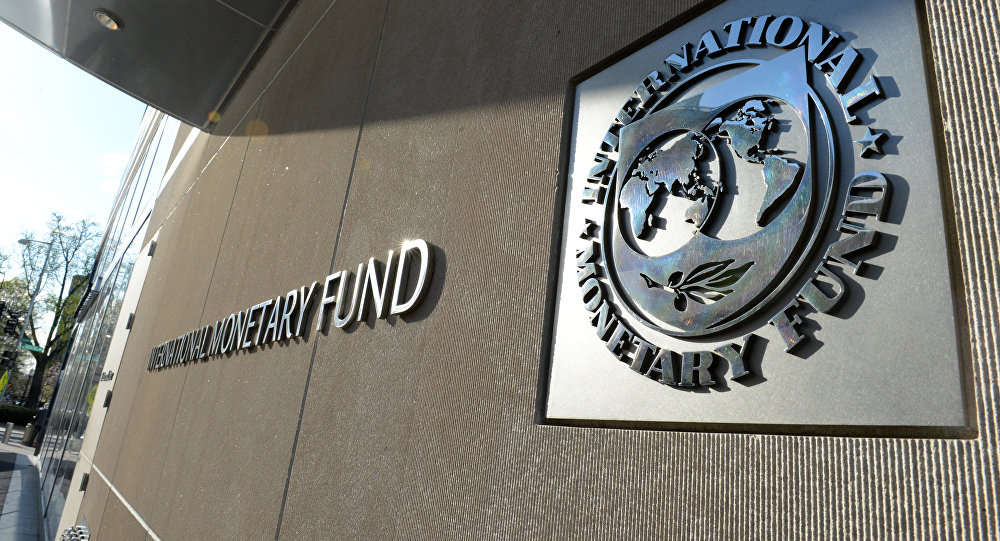The International Monetary Fund (IMF) has renewed its call for the Nigerian government to prioritize and expedite cash transfer programs to support the country’s most vulnerable households.
As Nigeria navigates economic challenges, the IMF emphasizes that social safety nets must complement ongoing fiscal and monetary reforms to ensure economic stability does not come at the expense of the most affected populations.
IMF Highlights Urgency of Social Protection Measures
During a press briefing on March 27, 2025, Julie Kozack, Director of the IMF’s Communications Department, reiterated the Fund’s position that cash transfers are a crucial intervention to mitigate the economic hardships millions of Nigerians face.
“We do recognize the extremely difficult situation that many Nigerians face,” Kozack said. “For that reason, I just want to emphasize that completing the rollout of cash transfers to vulnerable households is an important priority for Nigeria, as is improving revenue mobilization domestically.”
The IMF has long advocated for expanding direct financial assistance to low-income Nigerians, particularly as the country grapples with inflation, food insecurity, and slow economic growth. According to Kozack, the Nigerian government must ensure a well-structured and transparent execution of its social protection programs to maximize their impact.
IMF Officials Set to Return to Nigeria for Economic Review
In addition to the call for urgent cash transfers, the IMF announced that its staff will return to Nigeria next week to commence the groundwork for the 2025 Article IV Consultation. This review is a routine economic assessment conducted by the IMF to evaluate Nigeria’s macroeconomic policies, financial stability, and structural reforms.
Earlier in March, Gita Gopinath, the IMF’s First Deputy Managing Director, visited Nigeria and met with key policymakers, including Finance Minister Wale Edun and Central Bank Governor Yemi Cardoso. Her visit also included engagements with civil society organizations, private sector stakeholders, and students at the University of Lagos, reflecting the IMF’s commitment to a broad-based dialogue on Nigeria’s economic trajectory.
Scaling Up Cash Transfers: A Critical Step to Combat Poverty
Over the past year, the IMF has repeatedly urged Nigeria to expand its cash transfer program, particularly to underserved rural communities. According to the National Social Safety Net Program-Scale Up (NASSP-SU) project, backed by an $800 million World Bank loan, over three million poor and vulnerable households received cash transfers as of May 2024.
However, data reveals a disproportionate distribution of funds, with approximately 83% of beneficiaries residing in urban areas. Specifically:
- 2.5 million urban households received support
- Only 700,000 rural households benefited
This imbalance underscores the need for greater outreach to remote and economically marginalized communities, ensuring financial relief reaches those most in need.
World Bank and IMF Stress the Long-Term Benefits of Cash Transfers
The IMF and the World Bank recognize that well-targeted cash transfer programs can break intergenerational poverty cycles. As Nigeria faces rising inflation and slow economic growth, these social safety nets play a vital role in cushioning the economic burden on the poor.
The World Bank has stated that expanding financial aid to rural communities will address immediate financial distress and help stimulate local economies by improving household purchasing power.
The Path Forward for Nigeria’s Social Welfare Programs
With economic reforms underway, the Nigerian government faces a delicate balancing act—implementing policies that stabilize the economy while ensuring that vulnerable citizens are not left behind. The IMF’s renewed call for prioritizing cash transfers reflects a broader global trend of using direct financial assistance as an effective tool to combat poverty and economic hardship.
Going forward, Nigeria must focus on:
- Expanding cash transfer programs to rural areas
- Ensuring transparency and accountability in fund disbursement
- Strengthening domestic revenue mobilization to sustain social programs
As the IMF delegation returns to Nigeria for economic assessments, all eyes will be on the government’s commitment to protecting its most vulnerable citizens amid ongoing financial reforms. Whether or not these cash transfers reach the right beneficiaries in time could shape Nigeria’s economic trajectory in the coming years.



